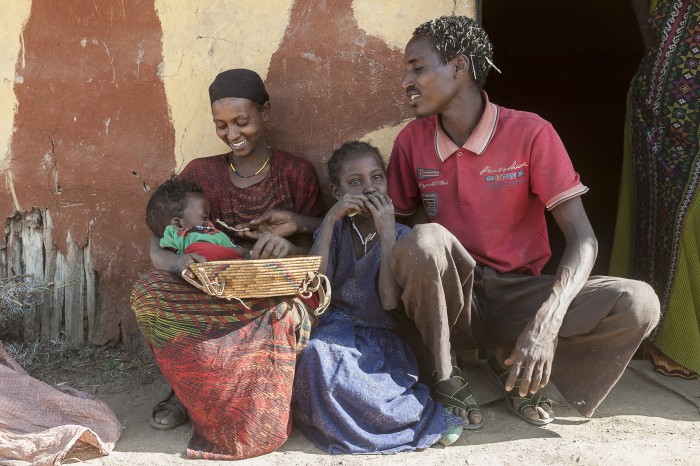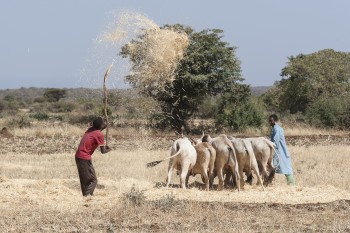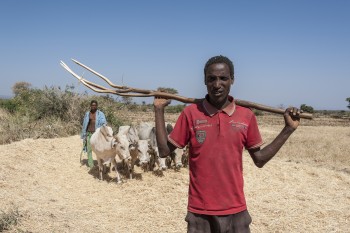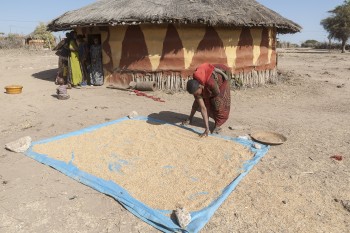Amene Ahmed’s story
Ethiopia, Sawena district, Adele

Amene Ahmed (22 years old) lives with his wife and two daughters in Adele in the lowlands of Bale region in Ethiopia. He works as a farmer and has one hectare of land, which is adjacent to that of his father who has 2 hectares of land.

Bad harvest
Amene has a few cows and oxen, which he uses to thresh his wheat. The harvest is just home and Amene is busy threshing. The harvest this year is a lot worse than usual. Amene: “In a good year, with sufficient rainfall, I would have harvested 2,500 kg of wheat per hectare. This year’s yield is far too small, I have now harvested 150 kg per hectare, not even ten percent of what I normally get. And last year’s yield was also disappointing, it was 700 kg per hectare. We have two rainy seasons per year, and especially the rainy season from July to November last year, was particularly bad. That is our main rainy season. Instead of eighty days of rain, we only had about twelve days of rain in September.”

Serious problems for the family
When he has a good harvest, Amene sells part of it in the market. It enables him to buy clothing, medicine and food. Because the harvest is now so disappointing, he will have to use all the wheat itself. “Because I cannot sell anything, I have no more money. When my children are sick, I cannot buy medicine or go to hospital. Also, I cannot buy other foods if our wheat stock is exhausted. The stock of wheat that I have now, lasts my family and me for less than half a year. And we can only eat wheat, there is no money for meat or vegetables. Vegetables are hardly available here. So I foresee major problems for my family. I will have to sell some of my cattle to make ends meet. In the past, I also had to sell cattle. Fortunately, my father can help out in case of emergency, he has more land and more cows. So he has some reserves.”

A three hours’ walk for water
In addition to the failed harvest, Amene has another problem. “Because of the drought, there is hardly any drinking water in the area, all drinking water sites are already exhausted. Every night I therefore walk with my cows and oxen to the nearest watering hole, which takes 3 hours. I let my cows drink there and spend the night there. Then I come back with a new supply of drinking water the next morning. This takes a lot of time every day.
Help needed badly
I do not get aid from the government or from other organisations. I hope we will make it to the next harvest in August. I would like to get training on how to work the land more effectively so that I can harvest more grain. Aid in the form of agricultural machinery, such as a threshing machine, could also make my work much more effective. ”
Text: Mariken Stolk